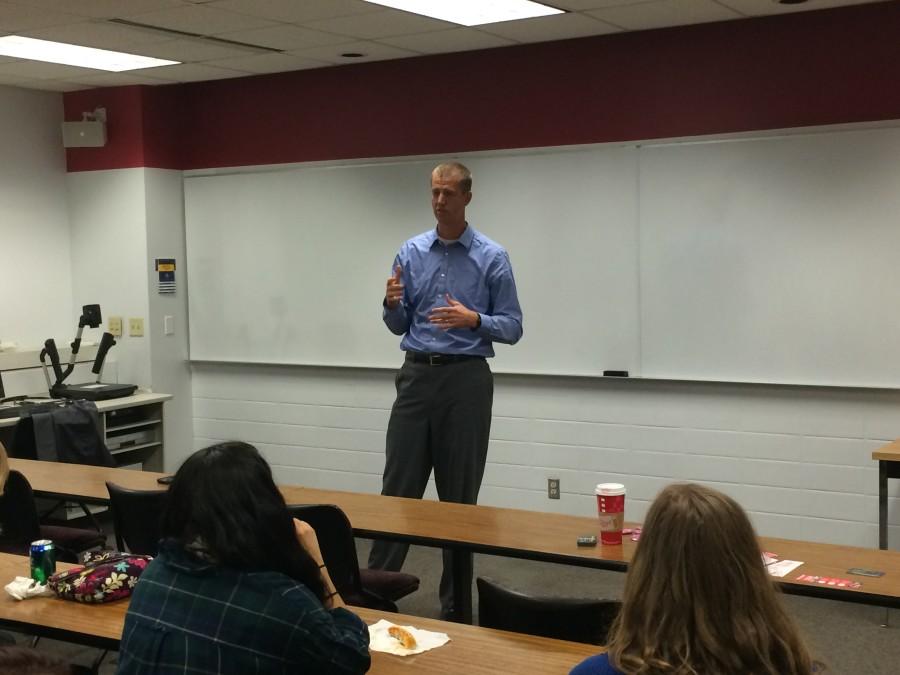During the past five years, Wisconsin has become one of 27 states to adopt right-to-work laws. Having been first passed by the state legislature in 2015, and later confirmed in a 2017 state Supreme Court case, Wisconsin’s right-to-work law allows employees of a largely unionized workforce to not have to become members of a labor union. In permitting this, individuals now possess the choice as to whether they wish to support the collective bargaining of their respective trade.
However, due to their nature, unions are only able to demand changes in working conditions for an entire demographic of workers, thereby creating a situation where all employees, regardless of their union membership, benefit from the efforts of collective bargaining.
These laws place Wisconsin unions in an increasingly precarious position. The right-to-work laws de-incentivize union membership when considering that workers can theoretically reap all the benefits offered by collective bargaining without having to financially contribute to the cause. In the wake of the passage of Wisconsin’s right-to-work law, union membership has noticeably declined in Wisconsin, with 73,000 workers leaving unions between 2017 to 2018, according to a report by the MacIver Institute.
While union membership was shrinking prior to the passage of right-to-work laws, the new legislation has certainly compounded the waning popularity of organized labor and damaged the influence unions possess.
Some may herald the relatively new right-to-work laws, and by extension the decline of collective bargaining, as a potential positive for the state economy. In actuality, the 2015 legislation is sure to damage the working class of Wisconsin. As collective bargaining continues to lose influence, individuals, especially those in the trades, are likely to be subjected to increasingly unfavorable conditions.
Without unions supporting labor, employees will almost certainly see some of the benefits which unions provide, such as pay raises, better benefits and other improvements to workplace conditions, quickly evaporate. In fact, individuals in right-to-work states were paid approximately $1,500 less for the same job performed by people from states where the legislation had not been implemented, according to a 2017 study conducted by the Economic Policy Institute.
Essentially, the right-to-work law which Wisconsin currently implements, greatly damages the ability for laborers to collectively bargain for improved workplace conditions. This is particularly harmful to blue collar occupations where unions have proved instrumental to defending the interests of less-skilled labor.
The postulation that right-to-work laws act as an incentive for entrepreneurs to bring their business to Wisconsin is, at best, largely questionable. When the right-to-work legislation was first introduced in 2015 by former Governor Scott Walker, one of the major justifications for such a law was that the ordinance would limit the influence of unions and thereby create an atmosphere which would be considerably more business friendly.
Although this claim is not completely without merit, the idea that union membership discourages business ventures is a misnomer. Large businesses more commonly search for “factors such as good infrastructure and the availability of a skilled and educated workforce” and that these “(attributes) outrank the relevance of right-to-work in deciding where to locate new facilities,” according to a 2017 publication by Amy Traub, Associate Director of Policy and Research at Demos. As a result, one of the primary concerns which right-to-work was intended to alleviate is almost entirely unfounded, leaving the legislation devoid of positive effect while simultaneously posing a serious threat to the security of laborers working conditions.
All considered, the right-to-work law currently enacted in Wisconsin, while not exactly catastrophic, thoroughly disadvantages working class individuals and will likely have a negative impact on the workplace conditions of thousands of Wisconsinites. Although the implementation of such an ordinance in the state is certainly not illegal, or even malevolent by any means, the state government would do well to reexamine its use of right-to-work laws as the future ramifications of such measures could prove detrimental to a large portion of Wisconsin’s labor force.
Moving forward, in order to maintain the influence of collective bargaining in Wisconsin, it will be important for workers to voluntarily join or maintain membership with their respective unions so that workplace conditions can continue to improve, even with the implementation of right-to-work legislation.



Alaric Matthews • Feb 19, 2020 at 11:45 am
As an anti-unionist, I support the right of an individual to not support the Political goals that dues bring to the Union. Also it is not right that as a Union Member, if I should choose to have the political portion of my dues reimbursed, that I can not participate as a full member regarding the work place environment, which is supposed to be the purpose behind the Union – not the politics. If there is a workplace concern, management should be approachable, if not, then the Workers need to get together and approach management, you don’t need to pay a Union to do this for you – unless you’re a coward.
Of the concerns you have about the Unions protecting workplace safety, have you seen the probably dozens of Federal Offices that oversee workplace safety, National Labor Relations Board (NLRB), Department of Labor, Environmental Protection Agency, Occupational Safety and Health (OSHA), etc. Don’t forget all the State programs as well. The Union for Worker Safety was pertinent and necessary in the day before Federalism, now it’s just another Government Program.
I strongly condemn the Public Union, Can anyone tell me how the Public Union benefits the Taxpayer?
Greg Guthrie • Apr 1, 2019 at 9:13 am
Great article, Jackson!
Check out my thesis at https://papers.ssrn.com/sol3/papers.cfm?abstract_id=1497084
Congratulations,
Greg Guthrie
Richard Graham • Mar 20, 2019 at 9:13 am
OMG, the title for this article is so false it’s disgusting.